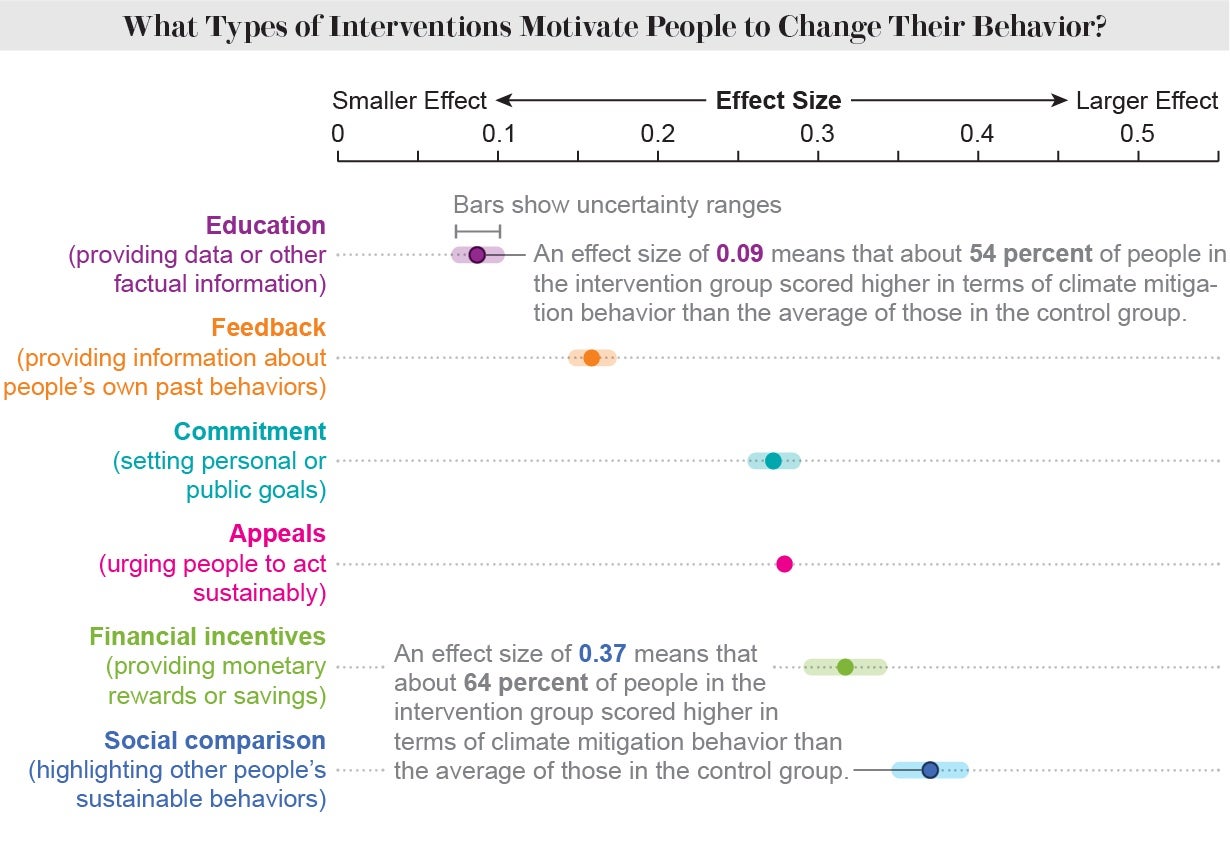Article by Andrea Thompson: “As the world hurtles toward a future with temperatures above the thresholds scientists say will lead to the worst climate disruptions, humanity needs to take all the actions it can—collectively and as individuals—to bring planet-warming emissions down as quickly as possible. Governments and companies need to do the lion’s share of the work, but ordinary people will also need to make changes in their everyday lives. A crucial question has been how best to spur people toward more climate-friendly behaviors, such as taking the bus instead of driving or reducing home energy use.
New research published in Proceedings of the National Academy of Sciences USA pooled the results of 430 individual studies that examined environment-related behaviors such as recycling or choosing a mode of transportation—and that looked into changing those behaviors through several interventions, including financial incentives and educational campaigns. The authors analyzed how six different types of interventions compared with one another in their ability to influence real-world behavior and at how five behaviors compared in terms of how easy they were to change.
As can be seen in the graphic below, financial incentives and social pressure worked better at changing behaviors than did education or feedback (for example, reports of one’s own electricity use). The results reinforced what environmental psychologists have found when looking at these interventions in isolation…(More)”.

